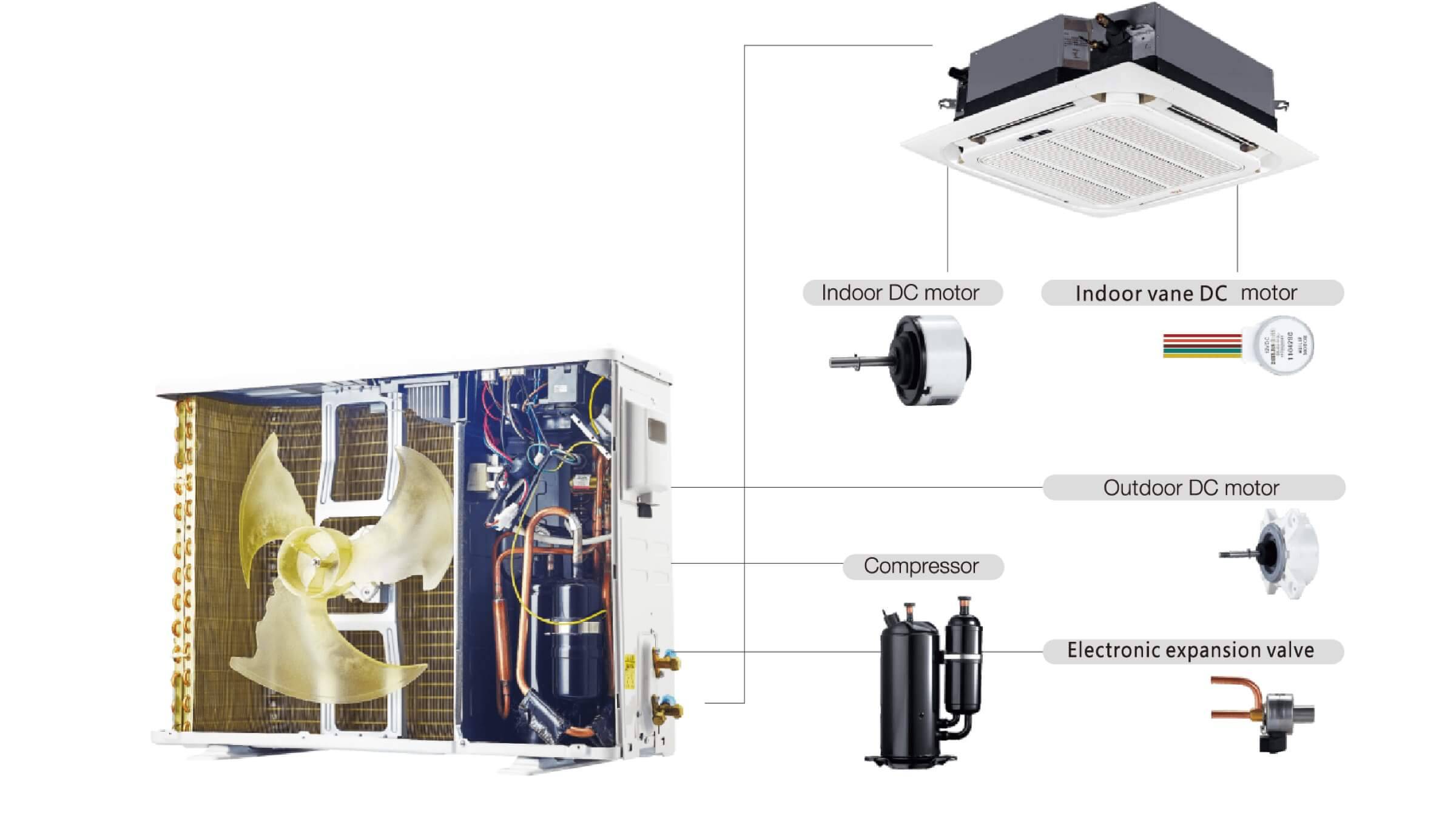Introduction
If you use a home air conditioning unit, you've probably seen the compressor. It's the metal box that contains the motor and other mechanical parts of the AC. If you need to learn more about what an air conditioning compressor does, this article will fill in all your gaps! It explains how an AC works and why it's important to keep your unit running smoothly for efficient cooling and comfort. We also discuss how to maintain your unit so that it lasts as long as possible.
What is an air conditioning compressor & how does it work?
An air conditioning compressor is a device that pumps refrigerant through the air conditioning system. It's a critical component of an air conditioning system because it’s what allows the heat pump to work. The compressor is on the inside part of the condenser unit, and it’s responsible for compressing refrigerant vapor.
The compressor is the heart of your HVAC system. It transfers heat from the refrigerant (the liquid that cools the air) to the condenser (the device that takes heat away from the air).
The compressor compresses (squeezes) refrigerant into a smaller volume, which raises its pressure and temperature—and subsequently increases its energy efficiency. This process also happens in reverse when it brings down the temperature again after cooling has occurred.
In addition to moving heat around, compressors can also provide cooling by carrying out evaporation: taking moisture from the inside air and turning it into water vapor outside your home where it can be easily dispersed into dryer areas such as bathrooms or kitchen cabinets.

How do I know if my air conditioning compressor is working?
When you turn your air conditioning unit on and hear a buzzing or humming sound, this is a sign that the compressor is working. If no sound can be heard, it could mean that there’s something wrong with the system.
Also, check to see if you have hot air coming from your vents. Place your hand near the air conditioning unit's fan. If the air isn't hot, but rather tepid or cool, it's a symptom that your compressor isn't working properly. It is possible that the device is not compressing the gas adequately.
How Long Does An AC Compressor Typically Last?
The lifespan of an AC compressor is typically between 10 and 15 years. How long the compressor actually lasts depends on a variety of factors, including:
The quality of the unit.
How often you run your air conditioner.
The quality of the installation and maintenance.
Do I Need To Replace My Entire AC Unit If My Compressor Is Bad?
If your compressor has gone wrong, you will need to replace the entire AC unit. While there are compressors that can be repaired, most small refrigerant leaks and minor damage won't allow you to get another 5-10 years out of your AC system. If you're considering repairing or replacing your AC unit, contact an HVAC professional who can assess what kind of damage was done and recommend a solution based on their experience working with these units.
How do you care for an air conditioning compressor?
To keep your compressor running efficiently and safely, you should:
Keep the compressor clean.
Change the oil and filter regularly.
Clean the Condenser Coils Regularly.
AC Compressor Issues
Air conditioner compressor won’t turn off: Check the evaporator coil for ice if the AC compressor fails to turn off. Ice formation can indicate that the system is losing refrigerant or that the evaporator coil is clogged with dirt or debris. This is a severe problem that must be addressed immediately.
Air conditioner compressor running but not cooling: If the indoor unit is blowing hot air and you haven't unintentionally selected "heat mode," the system's refrigeration cycle is probably broken or there's a refrigerant leak.
Fan blocked or damaged: If the fan in the outside unit becomes clogged or broken, it will struggle to evacuate warm air from the system, resulting in system failure. Turn off the air conditioner and make sure the rear of the outdoor unit is clear of impediments and debris.
Ticking sounds: If your compressor is causing a ticking or clattering sound, it is most likely due to a problem with the electrical controls/inverter assembly or mechanical issues with the compressor.
Air conditioner compressor very loud: If your air conditioner compressor is unusually loud, it may (understandably) annoy your neighbors, particularly if the system is running overnight.
Conclusion
Now that you know the basics of an air conditioning compressor, it’s time to take care of it. Make sure your unit is regularly inspected and repaired by a qualified technician.
The TCL AC range offers a variety of features that can be set to meet your needs. Visit TCL's official website and learn more!
Connect with us on Facebook, Instagram, Twitter & YouTube for the latest updates on our TCL products and events.
